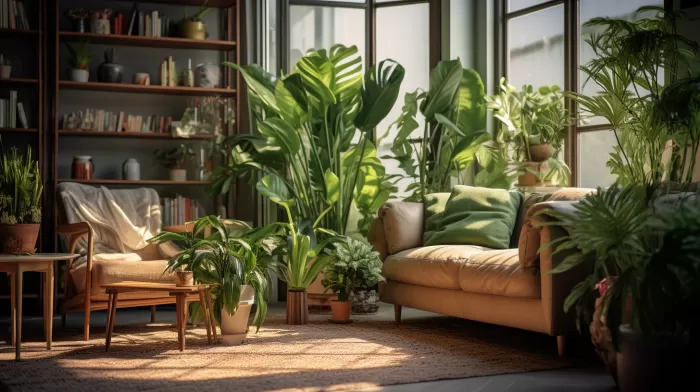Pollution can wreak havoc on our health, but many people overlook the quality of air within their own homes. A study in the New England Journal of Medicine shows that air pollution in our homes can increase the risk of early death. This is especially true for racial minorities and low-income individuals. Even small increases in ozone and particulate matter in the home can boost the risk of death by up to 13.6% in some cases. So, how can you improve the indoor air quality of your home? Here are seven tips to get started:
1. Install an air filtration system
Air filtration systems clean the air through the air ducts of your home. They can be quite helpful, but it’s also vital to clean your floors and prevent pollutants from accumulating in your house.
2. Sweep and vacuum regularly
To remove dust, pet dander, pollen, and smoke from your home, it’s important to sweep and vacuum frequently. Dusting furniture and belongings is also essential.
3. Minimize sources of indoor pollution
You can reduce indoor pollution by not smoking indoors, avoiding candles or wood fires in the home, keeping windows closed and air conditioners on during high-pollen times, and restricting pets to certain rooms.
4. Use exhaust fans
Exhaust fans can be found in kitchens, laundry rooms, and bathrooms. Make sure to turn yours on when cooking, showering, and drying clothes to improve air quality.
5. Keep filters clean
HEPA filters are the best kind, as they can effectively remove fine particulate matters. They can be used in whole-home air filtration systems and vacuums. Remember to clean them regularly so they continue to work effectively. And don’t forget to clean the dryer filter as well!
6. Keep chemicals out
Chemicals can harm both the body and the environment. Whenever possible, store chemical cleaning supplies, glues, paints, and pesticides outside of the home or in a contained area away from the main living spaces. In many cases, you can also replace these items with greener alternatives.
7. Bring more plants into the home
Plants are an excellent way to clean the air; they can remove pollutants like benzene, formaldehyde, and xylene. In fact, NASA conducted a study on the benefits of interior landscape plants for indoor air pollution abatement.
By following these seven tips, you can significantly improve your home’s air quality and potentially reduce the risk of health issues linked to indoor air pollution. It may seem like a small change, but it can have a big impact on your well-being. So give these simple steps a try, and breathe easier knowing that you’re creating a healthier home for yourself and your family.



